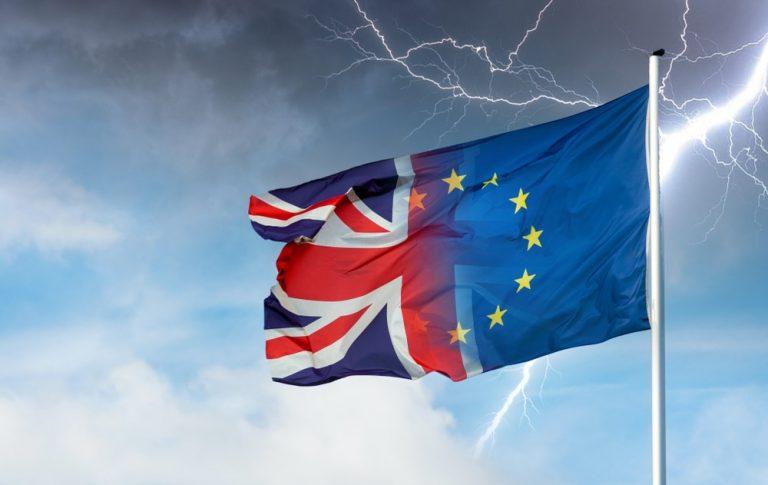
This piece is by no means factual, nor is it exhaustive or representative of the views of my peers. It is simply my unenlightened take on what Brexit means for the way we look at our Parliament, and I reserve the right to change my mind.
Brexit has underlined some of the systemic shortcomings in Westminster, by being one of the first instances of ‘politics’ in the modern era. While this sounds both cryptic and contentious, Westminster has – in the decades from Thatcher to present day – descended from a forum for political debate into a sphere of centrist amelioration politics and ultimately the politics of problem-solving and economic stewardship. What Brexit has done is given the political establishment an issue where the centre-ground doesn’t hold primacy – and doesn’t provide a basis for national unity – and thus the regular approach of compromise and fudging a solution, pales in the face of an issue where warring ideological factions are innate.
Why Westminster loves a perfect storm
While it is easy to imagine that centrist or problem-solving politics would lend itself to favouring political, social and economic calm – with politicians assuming a quasi-caretaker role – this does not mean that political turbulence is entirely counterproductive. Indeed, the public has more education, access to information and the ability to voice their concerns, than ever before. Thus, it is easy to imagine that in times of calm, the elevated and esteemed role of the political class appears to some to be almost arbitrary, and far more reactive than proactive.
As such, instances of crisis management spanning from the control of money supply under Thatcher’s first term of office, to Cameron’s fiscal retrenchment during the most recent recession, almost serve to cement or legitimise the view that Parliament plays a role as a guiding hand or voice of reason within the body politic. A view which, of course, the Brexit debacle has gone some way to debunking.
Why Brexit is different
Brexit is different, and there are many reasons for this. For the sake of keeping this article concise, we will only address one – rifts both within Parliament and in wider society. In what has been a widely covered display of incompetence, I hope readers can spare some hollow laughter for the Tory party as it attacks itself and forgets how to do what it does best, which is – loosely – governing effectively and managing the status quo. Following a vote and the resulting tumult the party brought upon itself, Theresa May’s thinly-veiled blackmail of ‘vote for my deal or risk no deal’ falls into the highlight reel and we can only remember with fondness such thin veneers of effective leadership as the mantra ‘strong and stable’. Sadly, her opposite number offers little relief, with more than thirty years of ideological stubbornness teetering at the first whiff of political gain. Unfortunately, even in televised PMQs, Jeremy Corbyn has managed little more than weak punches against an opponent with their hands down.
While incompetence and division in the Commons has been well-documented, it is at best a reflection of the main issue – our inability to put a lid on the divisions Brexit has highlighted in wider society. As rightly stated by a host of commentators, Brexit proceedings have brought sentiments of intolerance to the fore; and while this is regrettable, these views are not new. Until 2016, the discourse surrounding immigration and inter-cultural friction existed on the fringes but have largely been viewed as a faux pas by the political mainstream. This represents one of two shortfalls, either that politicians are out of touch with the salient issues that pervade general society, or until they have hand forced, the importance of innately contentious issues are regularly understated on the political agenda.
Whether because of ignorance, or merely because they live in hope, our representatives in Westminster appear to actively peddle a sort of pan-London model of society onto the whole of the UK – one where a loosely cobbled together idea of national identity is built upon celebrating diversity. Perhaps then, what Brexit proceedings have inconveniently highlighted is that this idea is disturbingly off the mark. Westminster’s London-centric approach and attempts to speak a national sense of community into being, have been called into question by a new dialogue which exposes the often-patronising bombast of the privileged, moneyed and regularly centrist London cohort, who do not represent the views of the country at large.
The tragedy of Brexit
The last two years have seen the debate touch the nerves of deep-rooted social issues, though these issues have failed to achieve primacy. While one argument states that the Leave camp won on the back of public disillusionment and people feeling they were being denied a say on anything that actually matters – what Brexit proceedings have guaranteed is no substantive discussion of anything BUT Brexit for two years. What we have now are deeper social rifts, economic and political uncertainty, and an effective distraction from talking about problems that existed in Britain before Brexit reared its head. Within Parliament, what we have uncovered is our politicians’ apparent inability to contend with matters that are innately political, beyond issues of monetary and fiscal policy.
